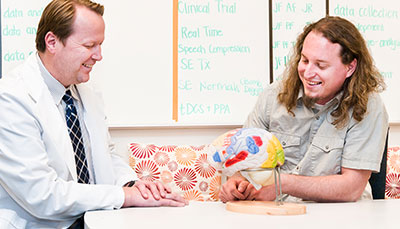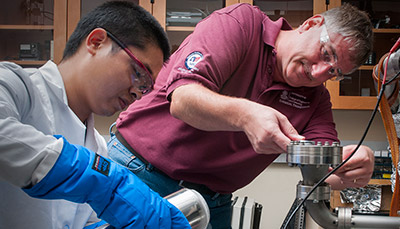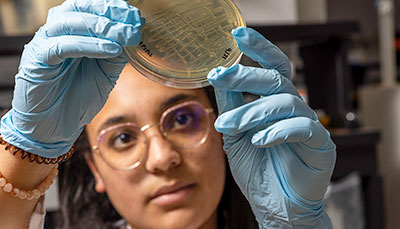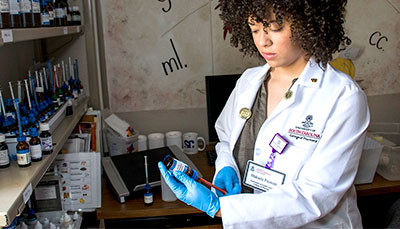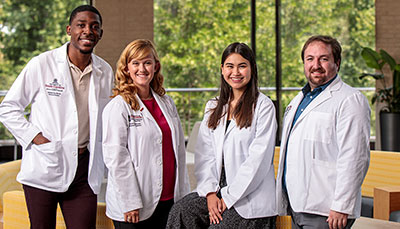Biomedical Sciences, Ph.D.
School of Medicine Columbia
Our research-focused curriculum will give you the mentorship and access to state-of-the-art technology you need to conduct advanced biomedical research, which you'll be encouraged to share through publications and conferences.
Your doctoral degree requirements are intimately tied to your research interests. Our goal is to make sure every student is able to find a place in a particular faculty member's lab, and there are a wide range of options as we have faculty mentors specializing in topics like cancer, genetics, immunology and neuroscience.
Program Highlights
-
Tier 1 Research
Study at the state's longest-running top-tier research university and a Carnegie Tier 1 research facility.
-
Flexible Curriculum
Take advantage of the degree's flexibility and breadth of options, and customize your program of study to suit your needs.
-
Expert Faculty
Work with faculty researchers who are studying a variety of disorders in order to improve patient care.
-
Personal Attention
Enjoy a close student-faculty relationship and all the opportunities that come with smaller class sizes.
Building Skills
Gain the professional and personal intelligence it takes to have a successful career.
-
Project Management
Organizing and overseeing tasks to achieve specific goals
Teamwork
Working collaboratively with others to achieve a shared goal or objective
Organizational Skills
Planning, prioritizing and managing tasks and resources to achieve specific objectives
-
Experimental Design
Planning and structuring scientific investigations to test hypotheses and gather empirical evidence
Problem Solving
Identifying, analyzing and resolving problems or challenges using creative and effective strategies
Collaboration
Working with others to achieve a common goal or objective
Using your degree
Make your college experience the foundation for a successful future.
Potential Careers
- Researcher
- Educator
- Policy Maker
Workplace Settings
- Medicine
- Pharmaceuticals
- Government
- Education
- Industry



